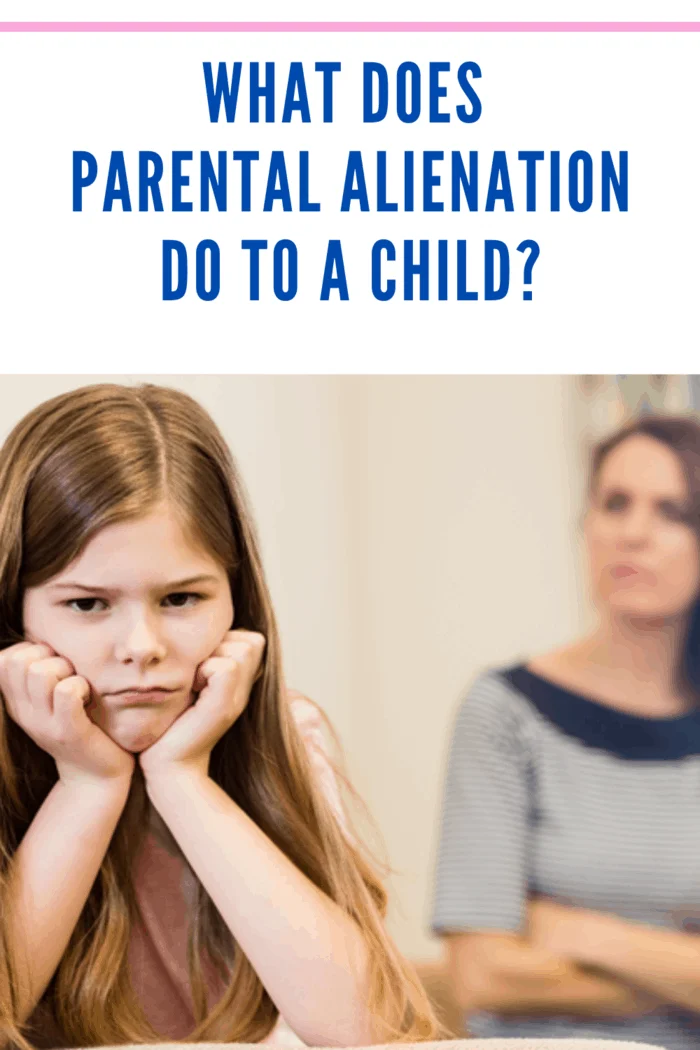What Does Parental Alienation Do to a Child?
Separation and divorce are hard enough. But when children are involved, things can become even more complicated. Unfortunately, it’s not uncommon for one parent to try to turn the children against the other parent. This harmful behavior, known as parental alienation, can be incredibly difficult to identify and even harder to prove.
In this article, we’ll explore what parental alienation is, the signs to watch for, and, most importantly, what parental alienation does to a child.

Understanding Parental Alienation
What is Parental Alienation?
Parental alienation occurs when one parent intentionally manipulates a child into fearing, disrespecting, or rejecting the other parent. Whether through subtle suggestions or outright lies, the alienating parent creates a divide that can emotionally harm the child.
Have you ever noticed your child repeating negative things the other parent said about you? Or maybe they suddenly show unwarranted anger or distance? If this sounds familiar, you could be dealing with parental alienation.
Is Parental Alienation Real?
Though the concept of parental alienation can be tough to pin down, it’s a very real issue. Richard Gardner, a child psychologist, first coined the term to describe children subjected to brainwashing by one parent against the other. While not officially listed as a psychological disorder, the DSM-5 (the manual used by mental health professionals) recognizes the impact of strained parent-child relationships, specifically under “child affected by parental relationship distress.”
Even if the courts don’t always recognize parental alienation, its effects on children are undeniable.
Examples of Parental Alienation
Parental alienation can be subtle or extreme, but it always causes harm.
Here are some common examples:
- A father tells his child that their mother doesn’t care about them because she’s dating someone new.
- A mother tells her child that their father doesn’t love them anymore.
These statements may seem small, but over time, they can deeply influence how a child views one of their parents.
Here are a few warning signs that suggest your child may be experiencing parental alienation:
- Constantly criticizing one parent without concrete reasons.
- Struggling to recall specific incidents of wrongdoing but still showing strong dislike.
- Supporting one parent’s side with unwavering loyalty.
- Repeating adult-like arguments or accusations about the alienated parent.
- Resentment toward not only the alienated parent but also their extended family members.
If these behaviors sound familiar, it’s crucial to act quickly before the damage worsens.

The Impact of Parental Alienation on a Child
So, what does parental alienation do to a child? Let’s face it—children just want to be loved and protected by both parents. But when they’re caught in the middle of their parents’ conflicts, they become emotional collateral.
Psychology Today points out that children often internalize the animosity between their parents, leading to harmful consequences like:
- Depression
- Lack of trust
- Low self-esteem
- Self-hatred
- Substance abuse
In the worst cases, children may suffer from depression, guilt, or even post-traumatic stress disorder (PTSD). They may also develop strained relationships with the alienated parent, sometimes lasting well into adulthood.
One heartbreaking reality is that children affected may go on to experience challenges in their own relationships, even becoming alienated from their own children.
One of the most damaging effects of parental alienation is self-hatred. Children often internalize the rejection of one parent and feel unworthy of love. They may believe that if their own parent doesn’t care for them, no one ever will.
What Can You Do?
If you suspect your child is being alienated from you, it’s time to take action.
- Talk to your child gently—find out what’s bothering them, but avoid accusing the other parent.
- Document incidents—keep a record of comments, actions, and any changes in your child’s behavior.
- Seek legal advice—a consultation with an attorney can help you understand your rights and work toward repairing your relationship with your child.
Don’t wait until it’s too late. Protect your relationship with your child now. And if you’re looking for resources to guide you, consider checking out parental alienation books on Amazon.
Final Thoughts: Healing After Parental Alienation
Parental alienation is one of the most painful experiences a parent can go through. It’s heartbreaking to see your child pulled away from you by someone they trust. But it’s important to remember that with time, patience, and professional support, there’s hope for healing.
